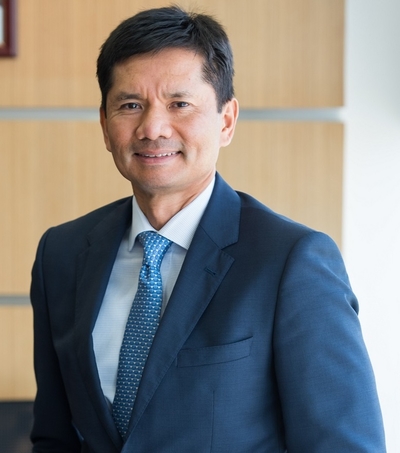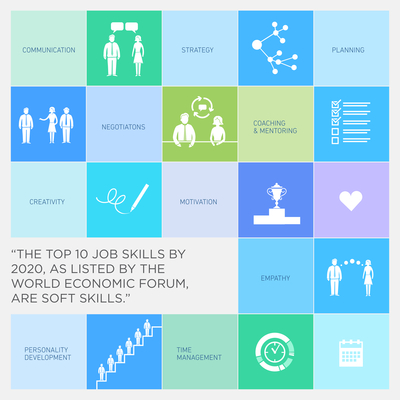
Global value chains and geographies of production continue to shift as Europe and US are relocating their regional production and services to Southeast Asia (SEA). Malaysia, being one of the fastest growing economies in SEA, is open to new opportunities and well-poised with its position in the heart of the region. Establishing a regional hub here allows businesses to tap easily into the SEA market base.
Malaysia has proven itself relevant to global multinationals due to its excellent ecosystem, business-friendly policies and providing the right infrastructure support. The digital economy is also blossoming to be comprehensive and highly-integrated in embracing business solutions that tap the power of IoT, Big Data, AI, cloud computing, robotics, fintech and other emerging technologies.
Malaysia’s decade long, third-place ranking on the A.T. Kearney’s Global Services Location is yet another factor to seal the deal. These have been attractive to global multinationals and over the years, many of these global players continue to establish their regional operations in Malaysia to serve their SEA businesses.
“Primarily, companies are looking for accessibility, scalability and ease of doing business. With the potential market growth, high-skilled talent is also an essential element to ensure the success of Malaysia in attracting the right multinationals to invest here,” said Datuk Zainal Amanshah, CEO of InvestKL.
Greater Kuala Lumpur has become the Malaysian home for many multinational corporations (MNCs) to set up their regional businesses. Playing the role as the investment promotion agency for Greater Kuala Lumpur, InvestKL Corporation (InvestKL) is tasked to attract large global multinationals to set up their regional headquarters and hubs in Greater Kuala Lumpur to strategically grow in Asia. This directive has translated to a steady flow of investments, as it easily makes up 30% of the nation’s GDP contribution.
Just as a host tries his best to facilitate all the guests’ needs, InvestKL provides assurance to these MNCs by offering investment location recommendations, government agency liaison and investor advocacy, industry-university collaboration, project implementation and post investment services.

Datuk Zainal Amanshah, CEO of InvestKL
Consequently, the nation’s commitment to move up the value chain is being bolstered by the offerings and presence of these global companies.
“InvestKL target multinationals within the Forbes 2000 and Fortune 500 ambit. Companies such as Air Liquide, Oracle, Honeywell, AXA and Linde – to name a few – were on our radar and have now established their headquarters or regional hubs here in Greater Kuala Lumpur. The list is growing every year and these multinationals are proud to call Greater Kuala Lumpur their new home,” adds Zainal.
GREATER KUALA LUMPUR AT THE FOREFRONT OF INDUSTRY 4.0
InvestKL has attracted many global players adopting industry 4.0 in recent years. These multinationals have been aggressively moving towards industrial transformation by creating both soft and hard infrastructures and rapidly evolving to stay ahead of their industry. InvestKL has also facilitated partnerships between MNCs and local companies to ensure exchange of knowledge and provide guidance through mentorships. This assists local companies to manoeuvre and establish a foothold in the journey towards Industry 4.0.
One such example is Air Liquide’s Smart Innovative Operations (SIO) Center for the Southeast Asia Pacific region. The SIO Center enables the remote management of production for 18 Air Liquide Large’s production units spanning eight countries across the region, remotely controlling the operations and supervising the production.
Another strategic investor embracing industry 4.0 is Honeywell’s ASEAN headquarters in Greater Kuala Lumpur. Its technologies and solutions will help transform operations and realise several benefits of digital transformation leading to increase in production and business performances for the region.
The results of a fruitful partnership are crucial for the success of digital transformation. One such example is the Malaysian partnership with retail giant Alibaba. The idea of having our cities controlled by AI is no longer a far-fetched idea, but an idea that’s slowly etching its way into reality. Alibaba has developed and tested its City Brain project, utilising Big Data technologies, cloud-based solutions and Artificial Intelligence (AI). Endless streams of data are collected and processed by supercomputers. With this technology, the AI is able to optimise traffic flow in real-time and enable a faster emergency response where required.
The City Brain project is now being deployed in Kuala Lumpur, marking a major foray into Artificial Intelligence. The Kuala Lumpur City Brain system provided by Alibaba Cloud is a project managed by Malaysian Digital Economy Corp (MDEC) and leading the data analytics, while Kuala Lumpur City Council (DBKL) provides access to camera live feeds, traffic light and events information. The initial phase of the programme will observe the execution of the Malaysia City Brain within Kuala Lumpur. This is expected to address issues faced by urbanites and better manage traffic flow in the city. But with this advancement, questions about cybersecurity tailgates not far behind. International Telecommunication Union (ITU), an extension of the United Nations found Malaysia to be ranked third in the Global Cybersecurity Index 2017, and it shows Malaysia’s commitment towards cybersecurity management.
FUTURE-FIT TALENT FOR INDUSTRY 4.0
Readiness to adopt technologies such as AI, Big Data, IoT, RPA, Blockchain and initiatives to bolster cybersecurity is undoubtedly the mark of a nation’s maturity to embrace Industry 4.0. For that to happen, the nation must have a talent pool with relevant skill sets.
The top 10 job skills by 2020, as listed by the World Economic Forum, are soft skills. Employers of the future will require talents who are able to do complex problem solving; those who are team players and able to manage people; those who can employ critical thinking and those who are well-versed in the art of negotiation – to name a few.
The Department of Statistics Malaysia listed a total of 15.1 million people in the labour force, as of 2017. From the 2015 UNESCO Institute for Statistics, Malaysia has a literacy rate of 94.6%; ranking second as the most Englishproficient country in Asia. However, the question InvestKL often face, is whether Malaysia has enough data professionals who are able to assist in the operations of Multinationals setting up their regional hubs in Kuala Lumpur? InvestKL with a collaboration with Talent Corp, has recently launched the Malaysian Global Talent (MGT Programme). Together with the support and guidance from the Ministry of Education (MOE), the ultimate goal of MGT is to produce future Malaysian global corporate leaders.
The programme strives to create a big pool of highly qualified homegrown talent that is skilled according to industry requirement and scale up the leadership ladder in global multinational companies. Large MNCs such as Linde and Air Liquide employ a huge percentage of local talents. In order to develop the talent pool and gear it towards their specific requirements, these MNCs are part of the MGT programme and have partnered with numerous local universities such as University Malaya, University Technology Malaysia and the Malaysian Institute for Supply Chain Innovation. This initiative is a strategic one; it would increase the nation’s supply of data professionals, thus increasing access to specific talent pools – a value proposition that would incur smiles and nods from MNCs.
The CEO @ Faculty Programme is yet another applaudable initiative leveraged under MGT. The programme seeks to gather CEOs, local and international, and an eclectic mix of industry players and facilitate the sharing of knowledge and experiences with university communities. Not only will they provide mentorship to students and lecturers, they will also play an advisory role in the formation of curriculum to maintain industry relevance.
While efforts to prepare local talent for Industry 4.0 is underway, uncertainty in the 4th IR, specifically the fear of losing jobs and remaining relevant, is still the talk of the town. Datuk Zainal parried this by saying, “When we spoke to various local and international CEOs about the future of jobs, their responses are unanimous: we want high-skilled talents coupled with soft skills.”
To intensify this digital revolution and to build future-fit talent, the Industry 4.0 framework was developed to promote innovation and competitiveness, supported by highly skilled and diverse workforce.
Technical knowledge will be of priority as the need to shift towards becoming progressively agile to adapt to the increasing pace dictated by Industry 4.0 and through digital evolution.

SHAPING THE ECONOMY
Malaysia has been enjoying a strong and competitive position as an ideal business location and in embracing technology adaptation in ASIA. On technology and innovation, the Global Innovation Index 2017 ranked Malaysia at 37th globally among 127 countries and 8th in Asia. Malaysia also advanced nine places to the 15th spot among 190 economies worldwide in the World Bank’s Doing Business 2019 Report, which based its rankings on business regulations and ease of doing business.
On the Industry 4.0 forefront, Industry4WRD policy framework that was recently launched by the Prime Minister Tun Dr. Mahathir Mohamad is marked to strengthen the economic growth and accelerate technology adaptation. This will increase Malaysia’s productivity, R&D activities and achieve optimum cost efficiency that will move the economy up the value chain of global production. It covers the entire value chain including suppliers, procurement, design, logistics and even sales, resulting in higher productivity and flexibility.
The Industry4WRD is a pivotal step as Malaysia seeks to strengthen its ongoing structural reforms to become a developed nation that is equitable, sustainable and inclusive by 2025 or even earlier. The Policy would serve as the impetus for our industry to make the leap into Industry 4.0 and shaping the economy forward.



